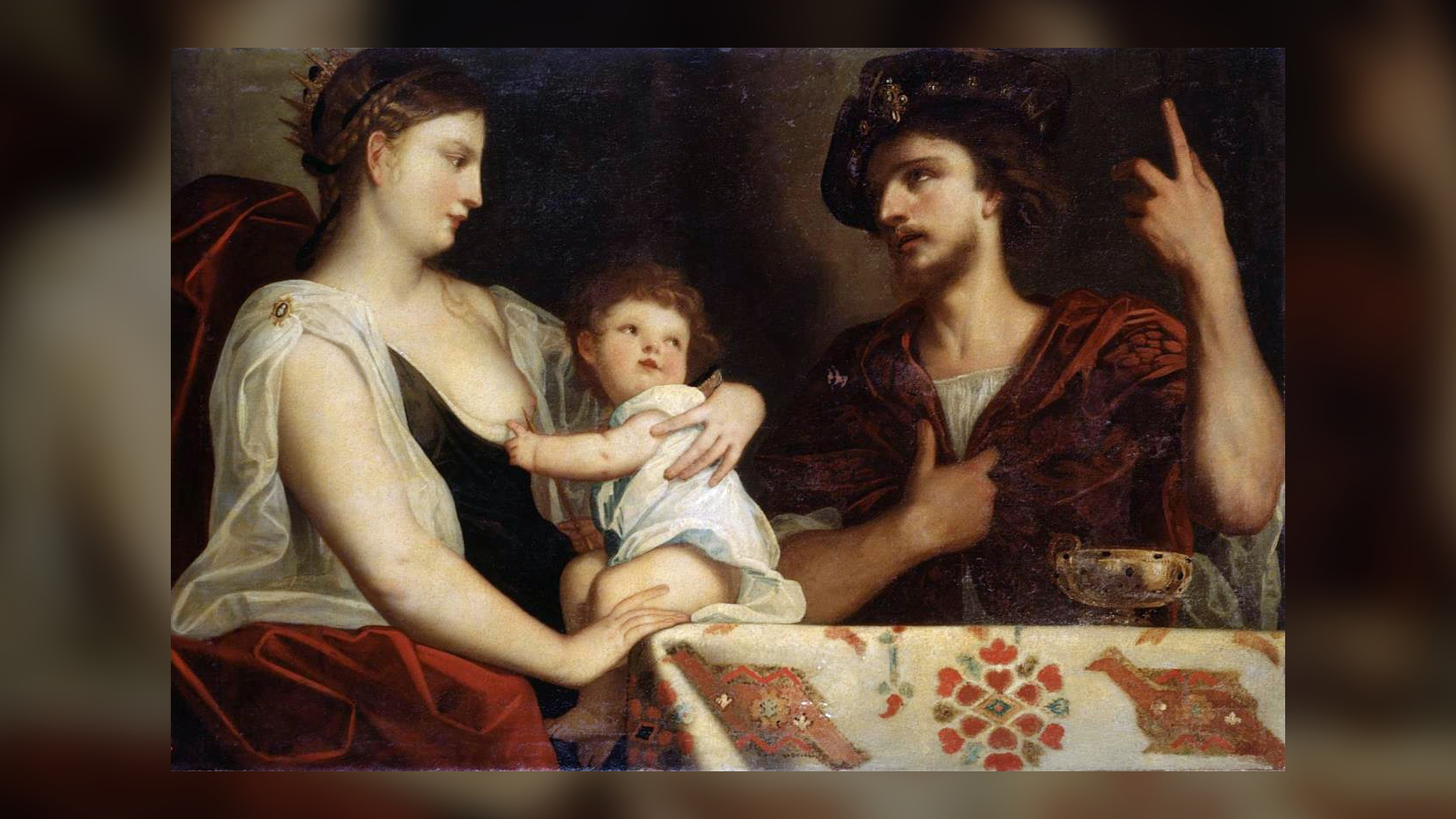
Alexander the Great ascended the Macedonian throne at age 20 and died just 12 years later, having conquered one of the largest empires in the ancient world. During that time, did he father any children, and, in the power vacuum following his death, what happened to these heirs?
In a word: yes. Alexander had one and possibly even two children — both sons. One, known as Alexander IV, was his son with his wife Roxana. The other, known as "Heracles of Macedon," was his son with Barsine, his mistress.
Roxana was the daughter of a chief in Bactria, an area in Central Asia. Alexander's forces captured her while campaigning in the region and she married him in around 327 B.C., wrote Ian Worthington, a professor of ancient history at Macquarie University in Sydney, Australia, in his book "Alexander the Great: A Reader" (Routledge, 2012). But Alexander didn't live to see their son; She was pregnant with Alexander IV when Alexander died in Babylon in 323 B.C.
"Heracles of Macedon" was born to a mistress named Barsine, a Persian noblewoman, around 327 B.C., making him about four years older than Alexander IV. Some scholars in modern times question whether Alexander was actually the father of Barsine, as Alexander never formally acknowledged the child. But there appears to be a consensus among some modern scholars that Heracles was his biological son.
"[A] few historians are skeptical of Alexander's paternity, but I do not share their view," Joseph Roisman, an emeritus professor of classics at Colby College in Maine, told Live Science in an email.

Why didn't they become king?
After Alexander the Great died of a mysterious illness at age 32, there was no clear successor for his massive empire, which stretched from the Balkans to modern-day Pakistan. His wife was pregnant with Alexander IV, although at the time it was not known if the child was a boy or girl.
Heracles of Macedon was not legitimate, making his claim to the throne more difficult. "The boy was never a contender to succeed him because he was illegitimate and the son of a mistress," Worthington told Live Science in an email.
Additionally, both Roxana and Barsine were of Asian ancestry, which some of Alexander's troops did not like. "According to the ancient [Roman] Alexander historian Quintus Curtius, both sons were proposed as potential heirs to the throne in a meeting of the generals and cavalry class, but the army rank and file — infantry — rejected both because the mothers were Asian," Carol King, an associate professor of classics at the Memorial University of Newfoundland, told Live Science in an email.
Arrhidaeus, the half brother of Alexander the Great, became king and Alexander IV was made a co-ruler after he was born. However, "neither 'king' could rule in practice, of course," King said. Arrhidaeus had some form of mental impairment that made it difficult for him to exercise power while Alexander IV was just an infant. As a result, "all became pawns in the wars of the successors, Alexander's powerful generals, as they fought each other for control of the empire; and all were murdered," King said, referring to Arrhidaeus and Alexander's children.
Alexander the Great's mother, Olympias, took on a significant role in the power struggle. In 317 B.C., she agreed to become the guardian of Alexander IV and, with the help of an army led by a general named Polyperchon, captured Arrhidaeus and had him killed, wrote Robin Waterfield, an independent scholar with a background in classics, in his book "Dividing the Spoils: 'The War for Alexander the Great's Empire" (Oxford University Press, 2011). However, a force led by a general named Cassander attacked Olympias and captured her along with Alexander IV in 316 B.C. and had Olympias killed.
Alexander IV and Roxana then found themselves captives of Cassander, who effectively controlled Macedonia as a king. Cassander didn't want any competition for the throne, so he had Alexander IV and Roxana killed around 309 B.C., to prevent the teenage heir from coming of age and potentially taking power.
Heracles of Macedon didn't fare any better. The general Polyperchon took Alexander's illegitimate son captive, and, after reaching a deal with Cassander, had him killed shortly after Alexander IV's death, Waterfield wrote.







